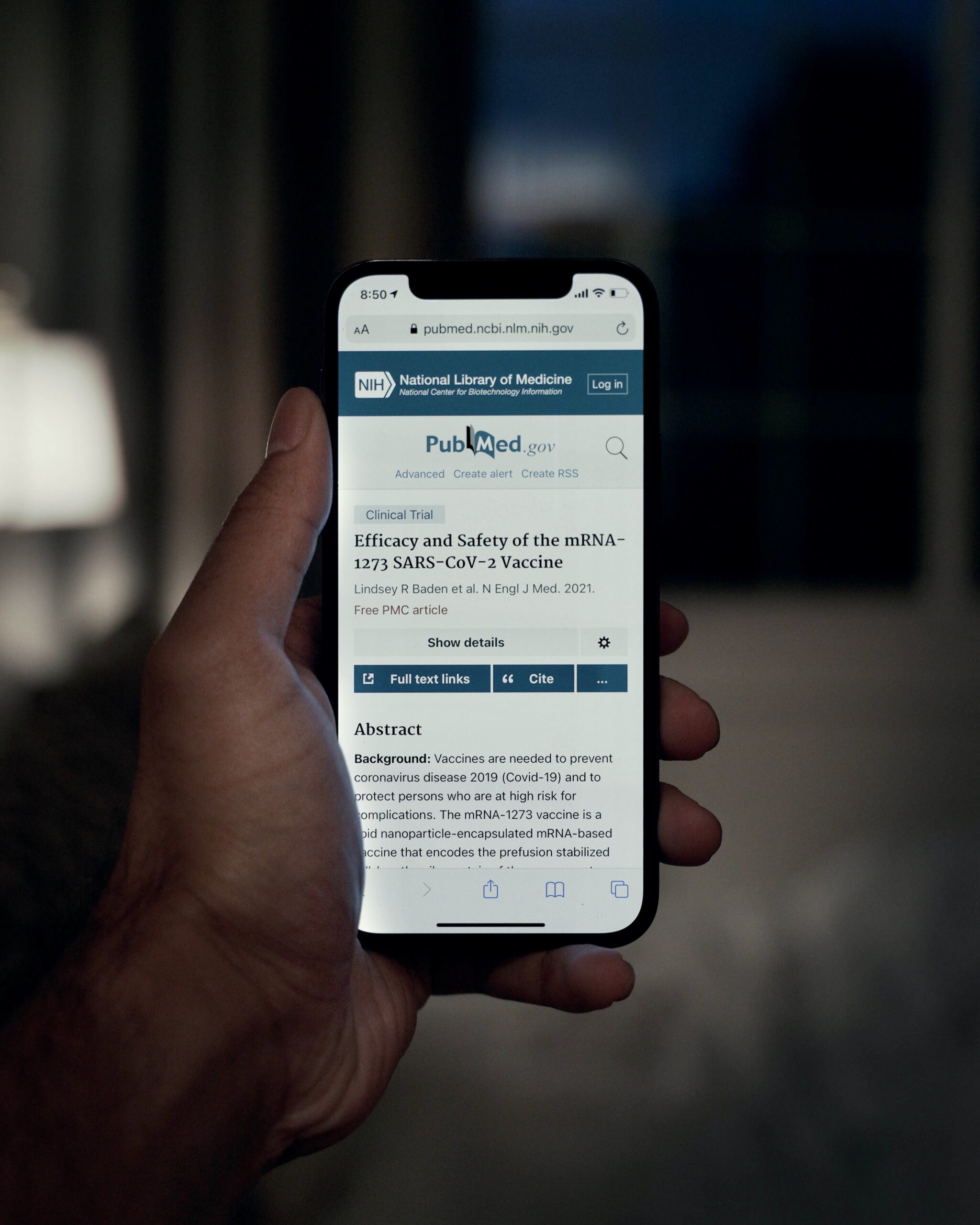So you’ve signed up for an affiliate program, eager to start earning some commissions, but there’s just one problem: you don’t have a website. Don’t worry – you’re not alone! In this article, we’ll explore creative and effective ways for you to promote your affiliate links without the need for a website. Whether you’re a social media enthusiast, a video content creator, or an email marketing expert, we’ve got you covered. By the end of this article, you’ll have a range of strategies in your toolbox to maximize your affiliate marketing success.

Social Media Platforms
Create a Profile
Creating a profile on various social media platforms is a great way to promote your affiliate links without a website. Start by setting up accounts on popular platforms such as Facebook, Instagram, Twitter, and LinkedIn. Make sure to use a catchy profile picture and create a professional bio that highlights your interests and the types of products or services you affiliate with.
Join Relevant Groups and Communities
To reach a targeted audience, join groups and communities on social media platforms that are relevant to your niche. These groups provide a platform to connect with individuals who are interested in the products or services you are promoting. Engage in meaningful discussions, share valuable insights, and build networking relationships. Remember to always contribute valuable content rather than solely focusing on self-promotion.
Engage with Target Audience
Engaging with your target audience is crucial for promoting your affiliate links effectively. Respond to comments, messages, and inquiries promptly to show your dedication and build trust. Like, share, and comment on posts that are relevant to your niche to increase your visibility. By consistently engaging with your audience, you can establish yourself as an authority in your field and gain credibility.
Utilize Video Platforms
Video content is becoming increasingly popular and is an excellent platform to promote your affiliate links. Create informative and engaging videos that showcase the products or services you are affiliated with. Platforms like YouTube and TikTok are great for sharing these videos. Be sure to provide valuable insights, reviews, and demonstrations that will captivate your audience’s attention and encourage them to click on your affiliate links.
Harness the Power of Hashtags
Hashtags are an essential tool for promoting your affiliate links on social media platforms. Incorporate popular and relevant hashtags in your posts to expand your reach and visibility. When users search for these hashtags, your posts will appear, increasing the chances of them coming across your affiliate links. Take the time to research trending hashtags within your niche to maximize the exposure of your content.
Email Marketing
Build an Email List
Building an email list allows you to directly reach out to your target audience and promote your affiliate links. Create a captivating lead magnet, such as an ebook or a free course, to entice visitors to subscribe to your email list. Implement opt-in forms on your website or social media platforms to collect email addresses and build a database of potential customers.
Craft Engaging Email Content
Once you have your email list, it’s important to craft engaging and valuable content to keep your subscribers interested. Provide insightful information, tips, and recommendations related to your niche. Make sure your emails are well-formatted, visually appealing, and mobile-friendly. Incorporate storytelling techniques to captivate your audience and drive them to click on your affiliate links.
Include Affiliate Links in Emails
When sending out emails to your subscribers, strategically include affiliate links in your content. However, be mindful not to overwhelm your readers by bombarding them with too many links. Ensure that the affiliate links are relevant and seamlessly integrated within your email content. By providing valuable recommendations and suggesting products or services that genuinely benefit your subscribers, you increase the likelihood of them clicking on your affiliate links.
Use Personalized Email Marketing
Personalized email marketing is a powerful strategy to connect with your subscribers on a deeper level. Segment your email list based on various factors such as demographics, interests, or purchase history. By tailoring your content to suit the specific needs and preferences of each segment, you can increase engagement and drive more clicks on your affiliate links. Personalization enhances the user experience, making your subscribers more likely to trust your recommendations and convert.
Offer Exclusive Deals to Subscribers
To incentivize your subscribers and encourage them to click on your affiliate links, offer exclusive deals or discounts. Provide special promo codes or limited-time offers that are only accessible to your email list. This not only adds value to your subscribers but also creates a sense of urgency, motivating them to take action. Exclusive deals not only drive clicks on your affiliate links but also foster loyalty and strengthen the relationship between you and your subscribers.
Blogging Platforms
Guest Blogging
Guest blogging on reputable websites within your niche is an excellent way to promote your affiliate links. Look for high-traffic blogs that accept guest posts and provide valuable content to their readers. When writing guest posts, ensure that they align with the website’s audience and focus on offering valuable insights. Include relevant affiliate links within your posts, but remember to respect the host’s guidelines regarding self-promotion.
Utilize Medium
Medium is a popular platform for writers and bloggers to share their content with a wide audience. Take advantage of this platform by publishing articles that are relevant to your niche. Create informative and engaging content that incorporates affiliate links naturally within your articles. As Medium allows you to add a call-to-action at the end of your posts, use this opportunity to direct readers to your affiliate links and encourage them to click and make a purchase.
Create Product Reviews on Blogging Sites
Another effective way to promote your affiliate links is by creating product reviews on blogging sites. Share your personal experiences and insights about the products or services you are affiliated with. Be honest and unbiased in your reviews, highlighting both the pros and cons. Including your affiliate links within the reviews makes it convenient for readers to explore and purchase the products you recommend.
Participate in Blog Commenting
Engaging with other bloggers in your niche through blog commenting is an effective way to promote your affiliate links indirectly. Leave thoughtful and valuable comments on high-traffic blogs, adding insights and opinions related to the topic discussed. By providing valuable contributions, you establish yourself as an authority and gain exposure. Include your affiliate links in your blog comments, but ensure that they are relevant and add value to the discussion.
Answer Questions on Quora
Quora is a Q&A platform where users ask questions on various topics. Utilize this platform to promote your affiliate links by answering questions related to your niche. Provide comprehensive and informative answers that genuinely help the users. Within your answers, you can include relevant affiliate links, but make sure they seamlessly integrate with your response and genuinely address the question being asked.
Utilizing YouTube
Create Informative and Engaging Videos
YouTube is a powerful platform for promoting affiliate links through creative and informative videos. Create high-quality videos that provide valuable content to your viewers and address their pain points. Offer tutorials, demonstrations, reviews, or expert advice related to the products or services you are affiliated with. By establishing yourself as a trustworthy source of information, you increase the likelihood of viewers clicking on your affiliate links.
Embed Affiliate Links in Video Descriptions
Take advantage of the video description section below your YouTube videos to embed your affiliate links. Explain in detail what the video covers and highlight the affiliate links within the description. Ensure that the links are relevant to the content of the video and offer additional value to your viewers. By providing easy access to your affiliate links, you increase the chances of viewers clicking on them and making a purchase.
Collaborate with Influencers
Collaborating with influencers in your niche is an effective way to expand your reach and promote your affiliate links. Identify relevant influencers with a large following and reach out to them to propose a collaboration. This can include featuring their content in your videos or having them create content that promotes your affiliate links. Collaborations not only increase visibility but also add credibility to your recommendations, driving more clicks on your affiliate links.
Promote Videos on Social Media
To maximize the exposure of your YouTube videos and affiliate links, promote them on various social media platforms. Share snippets or teasers of your videos on Facebook, Twitter, Instagram, and LinkedIn, and direct viewers to the full video on YouTube. Engage with your audience by replying to comments and encouraging them to explore your affiliate links. By leveraging the power of social media, you can attract new viewers and generate more clicks on your affiliate links.
Optimize YouTube Videos for SEO
Search Engine Optimization (SEO) is essential for increasing the visibility of your YouTube videos and driving traffic to your affiliate links. Optimize your video titles, descriptions, and tags with relevant keywords related to your niche. Utilize keyword research tools to identify popular search terms and incorporate them strategically in your video content. By optimizing your videos for SEO, you enhance their chances of appearing in search results, attracting more viewers, and increasing clicks on your affiliate links.

Forum Marketing
Join Niche-Specific Forums
Joining niche-specific forums is a valuable strategy for promoting your affiliate links and establishing yourself as an authority within your industry. Identify forums that attract your target audience and actively participate in discussions. Share valuable insights, answer questions, and provide solutions to users’ problems. By consistently providing value, you gain the trust and respect of the forum community, increasing the likelihood of them clicking on your affiliate links.
Provide Value through Knowledge Sharing
When engaging in forum discussions, focus on providing genuine value to the users. Share your expertise, offer insightful advice, and provide solutions to their challenges. By consistently contributing valuable content, you position yourself as an authority figure, making users more likely to trust your recommendations and click on your affiliate links. Avoid excessive self-promotion and prioritize the well-being of the forum community.
Include Affiliate Links in Forum Signatures
Many forums allow users to include a signature at the end of their posts. Utilize this feature by including a brief, catchy description of your affiliate products or services along with your affiliate links. Ensure that the links are relevant and add value to the overall discussion. By including affiliate links in your forum signatures, you generate passive exposure and increase the chances of users clicking on them.
Respond to Relevant Questions and Threads
Actively search for relevant questions and threads within forums that align with your niche. Respond to these inquiries with well-thought-out answers that address the users’ needs. Provide detailed explanations and suggestions, and whenever appropriate, include your affiliate links to recommend relevant products or services. By genuinely helping and providing valuable solutions, you build trust and increase the likelihood of users visiting your affiliate links.
Avoid Over-Promotion and Focus on Building Relationships
While it may be tempting to solely focus on self-promotion, it’s important to prioritize building relationships within forum communities. Engage in genuine conversations, show interest in others’ opinions, and build connections with like-minded individuals. By focusing on building relationships and adding value to the community, you create a positive reputation, making others more receptive to your recommendations and increasing the chances of them clicking on your affiliate links.
Content Publishing Platforms
Publish Articles on Medium
Medium is a popular platform for publishing articles and reaching a wide audience. Leverage this platform by publishing articles relevant to your niche and incorporating affiliate links naturally within your content. Take the time to create well-researched and engaging articles that offer valuable insights to readers. By providing valuable content and recommendations, you increase the chances of readers clicking on your affiliate links.
Submit Guest Posts on High-Traffic Websites
Guest posting on high-traffic websites within your niche is an effective way to promote your affiliate links and expand your reach. Research reputable websites that accept guest posts and align with your target audience. Craft informative and engaging posts that provide valuable content without being overly promotional. Integrate relevant affiliate links within your guest posts to direct readers to the products or services you recommend. Guest posting allows you to tap into established website traffic and gain exposure to a new audience.
Use Content Syndication Platforms
Content syndication platforms allow you to distribute your articles to various websites, increasing their visibility and driving traffic to your affiliate links. Platforms like Outbrain and Taboola allow you to reach a wide audience by recommending your articles as sponsored content on popular websites. By tapping into these networks, you can attract new readers and increase the chances of them clicking on your affiliate links.
Leverage LinkedIn’s Publishing Feature
LinkedIn’s publishing feature is an excellent platform to showcase your expertise and promote your affiliate links. Publish articles on LinkedIn related to your niche that offer valuable insights and recommendations. Create engaging content that appeals to professionals and aligns with their needs. Within your articles, integrate relevant affiliate links to direct readers to the products or services you endorse. Leverage LinkedIn’s large user base and professional network to expand your reach and generate clicks on your affiliate links.
Create eBooks or Guides on Scribd
Scribd is a popular platform for sharing and discovering digital content, including ebooks and guides. Create comprehensive and informative ebooks or guides related to your niche, incorporating your affiliate links strategically within the content. Ensure that your ebooks or guides offer valuable insights and actionable tips to readers. By sharing your content on Scribd, you can attract individuals who are interested in your niche and increase the visibility of your affiliate links.

Creating Webinars and Online Courses
Educate and Provide Value to Participants
Creating webinars and online courses allows you to educate and provide value to your audience while promoting your affiliate links. Develop engaging and informative content that addresses their pain points and offers practical solutions. By establishing yourself as an expert in your field, your participants will be more receptive to the recommendations and affiliate links you provide.
Include Affiliate Links in Course Materials
When designing course materials for your webinars or online courses, strategically incorporate your affiliate links. Recommend relevant products or services that complement the content you are teaching. By including affiliate links within your course materials, participants have easy access to the products or services you endorse, leading to potential conversions.
Promote Webinars on Social Media Platforms
To generate interest and drive attendance to your webinars, promote them on various social media platforms. Create engaging posts that highlight the benefits of attending your webinar and provide a link to register. Leverage the power of social media by leveraging hashtags, sharing teaser videos, and engaging with potential participants. By maximizing your webinar’s exposure, you increase the chances of attracting participants who will later click on your affiliate links.
Collaborate with Industry Experts
Collaborating with industry experts can greatly enhance the credibility and reach of your webinars and online courses. Identify experts within your niche and invite them as guest speakers or partners in your course creation. By leveraging their expertise and reputation, you attract a wider audience and gain credibility in the eyes of your participants. Collaborations with industry experts also open doors for cross-promotion, which can further drive clicks on your affiliate links.
Collect Participant Feedback and Referrals
After conducting your webinars or online courses, collect feedback from participants to enhance your future offerings. Ask for testimonials that highlight the value they gained from your content and recommendations. Testimonials serve as social proof and can encourage others to click on your affiliate links. Additionally, incentivize participants to refer your webinars or courses to their networks by offering exclusive deals or discounts. Word-of-mouth referrals can be a powerful way to generate more clicks on your affiliate links.
Social Bookmarking Sites
Submit Content to Bookmarking Websites
Social bookmarking websites allow users to discover and save content for later reference. Submit your content, such as articles, blog posts, or videos, to popular bookmarking sites like Reddit, Flipboard, or Digg. Make sure your content is relevant to the interests of the community and adds value. By sharing your content on bookmarking websites, you increase the visibility of your affiliate links and attract users who are interested in your niche.
Optimize Titles and Descriptions for Keywords
To increase the visibility of your bookmarked content, optimize the titles and descriptions for relevant keywords. Conduct keyword research to identify popular search terms within your niche and incorporate them naturally in your content. By optimizing your titles and descriptions, your content becomes more discoverable, increasing the chances of users coming across your affiliate links.
Engage with Other Users’ Content
Engaging with other users’ content on bookmarking websites can help you build relationships and attract attention to your own content. Upvote, comment on, and share valuable content created by others within your niche. By actively participating in the community, you increase your visibility and establish yourself as a credible source of information. This increases the chances of users exploring your own bookmarked content and clicking on your affiliate links.
Include Affiliate Links in Relevant Bookmarks
When bookmarking your own content on social bookmarking websites, make sure to include your affiliate links in a way that adds value to the users. Avoid overly promotional or spammy practices by focusing on recommending products or services that genuinely address the users’ needs. By providing valuable recommendations through your bookmarked content, you increase the likelihood of users clicking on your affiliate links.
Leverage Niche-Specific Bookmarking Communities
Consider joining and actively participating in niche-specific bookmarking communities to promote your affiliate links effectively. Identify communities that align with your niche and share your content within these platforms. Engage with other members by exchanging thoughts and insights. By contributing to these communities, you gain visibility, establish credibility, and increase the chances of users clicking on your affiliate links.

Utilizing Influencer Marketing
Identify Relevant Influencers in Your Niche
Influencer marketing is a powerful strategy for promoting your affiliate links. Identify influencers who have a significant following within your niche and align with your target audience. Research their content, engagement rates, and authenticity to ensure they are a suitable fit for your affiliate promotions. By collaborating with influencers, you tap into their loyal followers and increase the chances of attracting clicks on your affiliate links.
Establish Relationships with Influencers
Building relationships with influencers goes beyond a one-time collaboration. Engage with their content by liking, commenting, and sharing. Demonstrate genuine interest in their work and establish a rapport. By investing time in building relationships, you increase the likelihood of influencers reciprocating and promoting your affiliate links in the future.
Collaborate on Sponsored Content
Collaborating with influencers on sponsored content allows you to leverage their reach and influence to promote your affiliate links. Define the terms of the collaboration, ensuring that the content they create aligns with your brand and offers value to their audience. Whether it’s a dedicated post, a product review, or an endorsement, make sure the content includes clear calls-to-action that direct their followers to your affiliate links.
Promote Affiliate Links through Influencers
To promote your affiliate links effectively, ensure that influencers seamlessly incorporate them into their content. Ideally, the affiliate links should be integrated naturally, providing valuable recommendations to their followers. By recommending products or services authentically and transparently, influencers can significantly impact their audience’s purchasing decisions, resulting in more clicks on your affiliate links.
Leverage Affiliate Discount Codes
One effective way to promote your affiliate links through influencers is by providing them with affiliate discount codes to share with their followers. These discount codes not only attract attention but also incentivize their audience to make a purchase using your affiliate link. By leveraging the power of exclusivity and discounts, you encourage more clicks and conversions on your affiliate links.
Offline Promotions
Business Cards with Affiliate Links
Even in the digital age, offline promotions can be effective in generating clicks on your affiliate links. Include your affiliate links on your business cards to distribute at networking events, conferences, or social gatherings. This offline approach allows you to connect with potential customers who may not be active on online platforms. By providing them with a convenient way to access your affiliate links, you increase the chances of them exploring and making a purchase.
Participate in Events and Conferences
Attending events and conferences related to your niche can broaden your network and promote your affiliate links. Take advantage of speaking opportunities to share valuable insights and capture the attention of attendees. Engage with fellow participants, exchange business cards, and discuss your affiliate products or services. By actively participating in events and conferences, you increase your visibility and generate interest in your affiliate links.
Utilize Direct Mail Marketing
Direct mail marketing is a traditional yet effective way to drive clicks on your affiliate links. Create visually appealing postcards or brochures that include information about your affiliate products or services and the corresponding affiliate links. Target a specific audience based on their interests and demographics. By delivering your promotional materials directly to their mailboxes, you capture their attention and provide a tangible reminder to visit your affiliate links.
Print Flyers or Brochures with QR Codes
Print flyers or brochures that include QR codes linking directly to your affiliate links. These codes can be scanned by individuals using their smartphones, providing them with instant access to the products or services you are promoting. Make sure the design is visually appealing and that the content highlights the benefits of using your affiliate links. Distribute these materials strategically in high-traffic areas to maximize exposure and generate clicks on your affiliate links.
Offer Affiliate-Specific Coupons or Discounts
To incentivize offline customers to click on your affiliate links, offer exclusive coupons or discounts that can only be redeemed online. This creates a sense of urgency and encourages them to visit your affiliate links to take advantage of the promotional offer. By bringing offline customers to your online platforms, you increase their exposure to your affiliate links and give them a personalized incentive to make a purchase.
In conclusion, promoting your affiliate links without having a website is entirely possible by utilizing a variety of strategies across different platforms. From social media platforms and email marketing to blogging platforms and offline promotions, there are numerous avenues through which you can engage with your target audience, provide valuable content, and encourage them to click on your affiliate links. Remember to always focus on building genuine connections, providing value, and offering relevant recommendations to establish credibility and trust with your audience. By employing these comprehensive strategies, you can effectively promote your affiliate links and drive conversions, ultimately boosting your affiliate marketing success.


